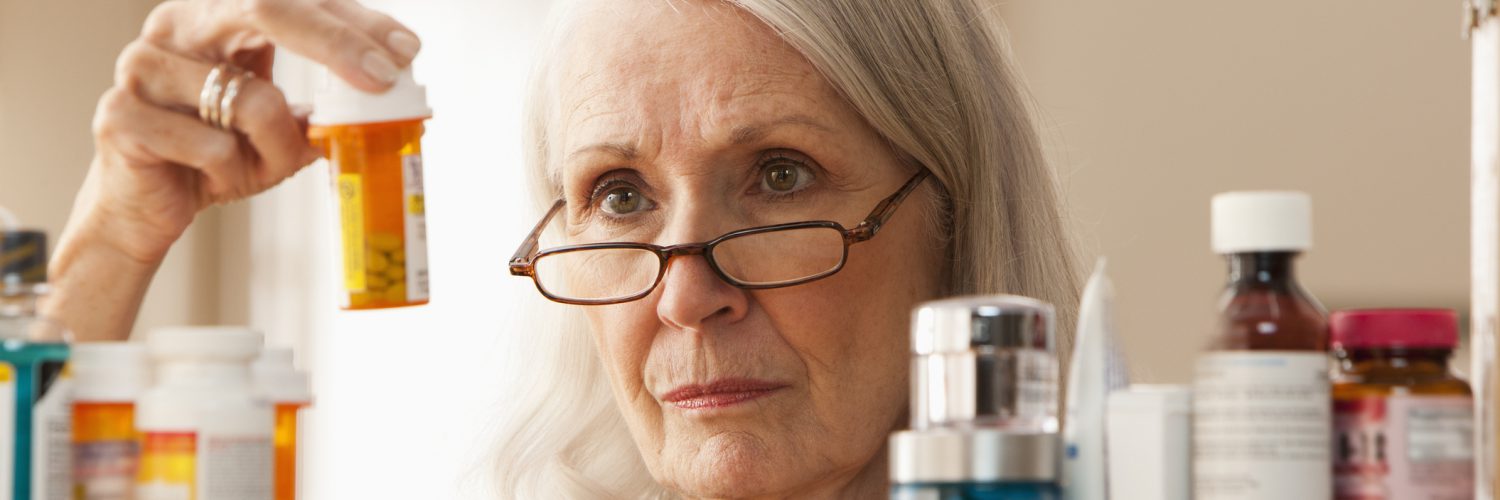When used as directed by your doctor, prescription medications can offer many benefits for those who need them. However, when taken by someone other than the patient or used inappropriately, they can be addictive or even dangerous. We all have a responsibility to ensure these medications stay safe and accessible for people who need them and out of the hands of those who could be harmed. Read on for tips to properly store medications and dispose of them when no longer needed.
How to safely store medications at home
- Store medications in a cool, dry place that is not easily accessible by children or pets (note: experts recommend not storing medications in a bathroom medicine cabinet as humidity can affect the drugs).
- It is also helpful to keep medicines for different family members separate to avoid potential confusion.
- If your pharmacist or healthcare provider lets you know a medication, either prescription or over-the-counter, has the potential for abuse, keep it in a locked location when not in use.
- Keep medications in their original containers so you can refer to the accompanying important information and directions for use. And don’t throw out the leaflets that come with your prescription medications; they have important information about your prescription, so keep them where you store your medicines. This also applies to over-the-counter medications – keep them in their original boxes, which often contain vital information such as dosage instructions and drug interactions.
- Don’t mix different medicines in the same bottle–this increases the likelihood of taking the wrong pill at the wrong time.
- Do not share prescription medications with anyone.
- Review your prescription medications on a regular basis to make sure nothing is missing, expired, or no longer in use.
How to dispose of unused medications
A recent survey found that over half of adults reported disposing of their medications improperly, either by throwing unused medicines in the trash without taking further precautions or flushing them down the toilet. If you are done taking a medication before the bottle is empty or discover that medication in your medicine cabinet is expired, there are a number of steps you can take to safely dispose of these drugs to prevent any potential issues.
- Ask your pharmacy or local government if they offer a medicine take-back program; many communities provide opportunities for you to return unused medication that will then be properly disposed of.
- Most medications should not be flushed; however if your medicine is on this list from the FDA, it is safe to dispose by flushing.
- If you need to dispose of needles, contact your local municipality or local hospital to determine the preferred method of disposal for needs and sharps.
- If there is not a take-back program near you and your medication is not able to be flushed, you can dispose of it in the trash by taking certain precautions first:
- Remove medication from the bottle without crushing it
- Mix pills with kitty litter or used coffee grounds in a sealed plastic bag
- Throw the bag out with your regular trash
- Make sure to remove or scratch out all identifying or personal information on the original packaging before throwing the empty bottle away
Properly storing and disposing prescription medications are important steps to prevent misuse or abuse of these often powerful substances. If you have questions about properly storing, transporting, or disposing of medications, it’s a good idea to call or visit your doctor and/or your local pharmacy and speak to the pharmacist for more suggestions and advice.
Other helpful resources
To learn more, please visit any of the websites below for additional information about safe medication storage and disposal:



